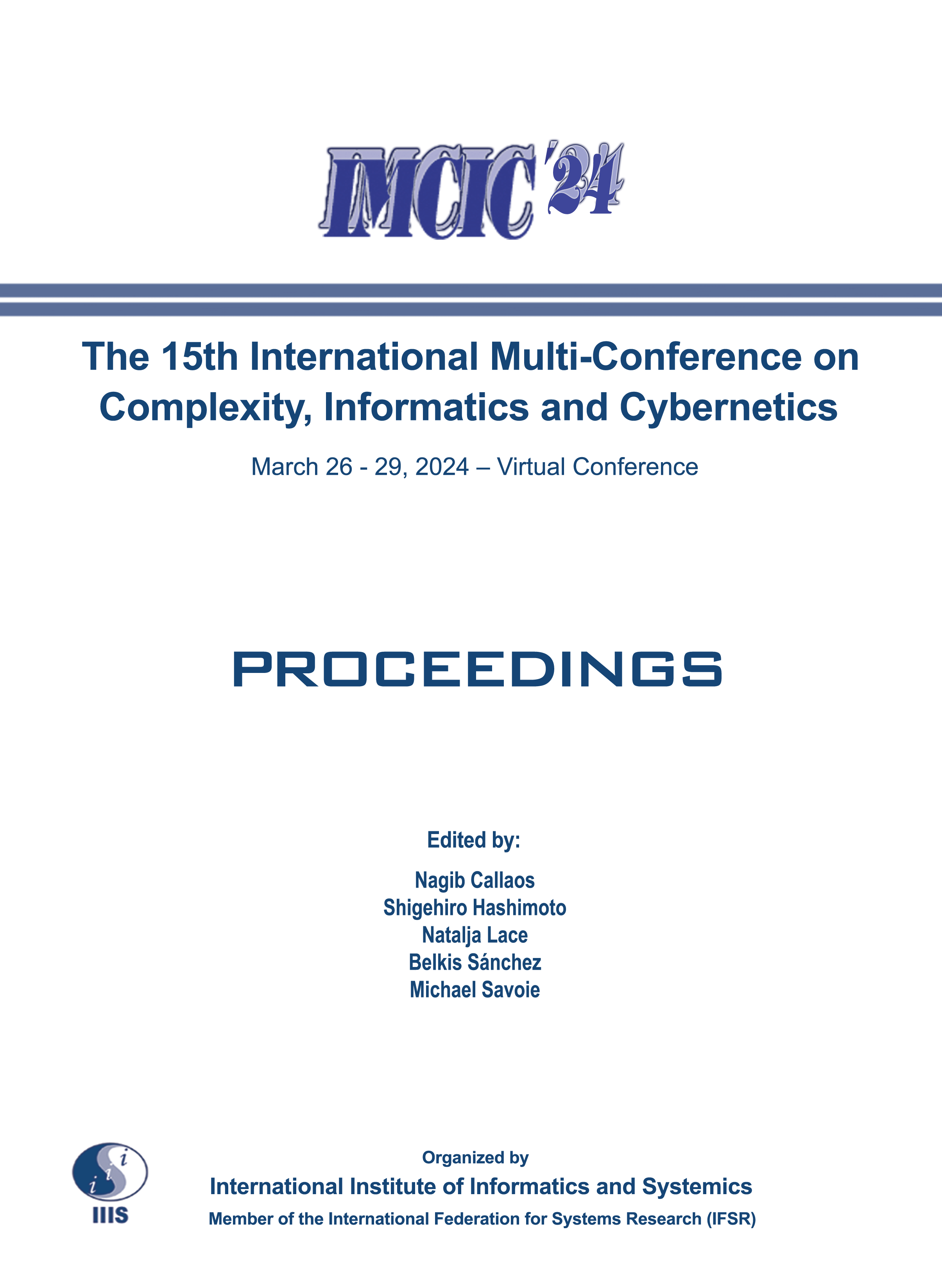2024 Spring Conferences Proceedings

|
Information Literacy, Information Transparency and Information Accessibility – Distinctive Features of Cyber Security
Stoyan Denchev, Irena Peteva, Steliana Yordanova
Proceedings of the 15th International Multi-Conference on Complexity, Informatics and Cybernetics: IMCIC 2024, pp. 145-147 (2024); https://doi.org/10.54808/IMCIC2024.01.145
|
The 15th International Multi-Conference on Complexity, Informatics and Cybernetics: IMCIC 2024
Virtual Conference March 26 - 29, 2024 Proceedings of IMCIC 2024 ISSN: 2771-5914 (Print) ISBN (Volume): 978-1-950492-78-7 (Print) |
|
Abstract
The study analyzes the concept of security, and the distinctive characteristics of this concept in particular, related to information literacy and to the opportunities to access various information intended for public use. Based on existing theories on security, perceived as a building block and a logical state of society, a natural pattern is analyzed, associated with the level of information literacy of specialists who study security issues. This pattern occurs primarily in the depths of the conclusions in the process of the category definition and redefinition of the topics, related to the regulatory function of cyber security in the process of building and developing a culture of information transparency.
Background and problem oriented conclusions. The category of "security" has been researched as a universal category, reflecting the essential aspects of existence of natural and social systems, mainly related to the measure and the transition from one situation to another of the respective tangible and intangible systems [5]. The study is based on the main thesis that without the acquiring, availability, development and practical use of respective levels of information literacy, the so-called security professionals demean the category "security" itself and turn it into a label and declarative concept, which gradually passes on to the "dead zone" of scientific knowledge. The study pays special attention to the regulating function of security. From this position fusion between the desires and the possibilities for total transparency is made, a transparency accomplished on the basis of high level of information literacy, unrestricted access to public information and the necessary regulatory activities of the state, ensuring the appropriate degree of general and cyber security on a national, regional or international level. Results. Analyzed problems give reason to sum up that acquiring knowledge and skills in the field of security necessarily requires reaching maximum levels of information literacy, which permanently transform into information competency. As a result, basic and upgraded knowledge is synthesized. Every specialist on security issues, depending on their professional orientation, must possess this knowledge in order to be functionally literate. Of course, this basic and upgraded knowledge, as conceptualization of the functional literacy, should be differentiated depending on the narrow experience and professional qualifications of specialists involved in the process. |
||




